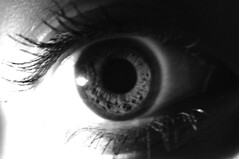Those of you who follow this blog know about what I call the Literary Pyramid Scheme. Nonetheless, in case there are some newbie readers, here’s a quick recap:
Some time ago, I posted a call for volunteers to step forward to help me with a literary experiment. I described a letter I received that invited me to become a member of an informal book club. It went on to outline a kind of literary pyramid scheme, whereby I would send out one book and six letters. In return, I could expect to receive a maximum of 36 previously read books selected by strangers from their very own shelves.
The idea behind this project is to write an essay about the books I get in the mail from strangers. The first book to land in my mailbox was Gods and Generals, and it prompted some musings on the traces of former lives and journeys that we find in second-hand texts.
Book #2 arrived last week: Blink by Malcolm Gladwell. And even though it arrived quite a few days ago now, I haven’t written about it yet for the simple reason that I’ve been too busy reading it.
I’m a die-hard New Yorker reader, so Gladwell (a regular contributor) is very much on my reading map. Still, I’m not sure why, but I’ve never read any of his books. Recently, though, I have been especially tempted by Outliers, where he argues that geniuses become who they are and accomplish what they do in no small part because of the sheer number of hours they spend doing whatever they do: hockey, cello, writing, painting, you name it. I think the magic number of hours was 10,000. Now, for someone who spends every day in front of some manuscript or other, logging hour after hour, this is oddly comforting news.
Blink, by contrast, is about the genius of intuition. It’s about micro-cognition, and how we all carry split-second wisdom deep inside our most unconscious thought processes. I’m not done reading yet, but so far, the most fascinating and terrifying chapter for me (married eight years, and counting) has been his account of how the outcome of marriages can be predicted with shocking accuracy by analyzing very short snippets of conversations between couples. I’m sure you know this study (the key emotion is contempt). If you don’t, it’s worth reading about.
This book made its way to my home near Montreal from a stranger in West Virginia. What a lovely gift. It’s furthered my thinking on creative nonfiction (Gladwell’s version of it, though quite different from mine, is very good indeed). It’s satisfied a curiosity about a writer I’d wanted to get to know better, and made me want to read more. Outliers will be next on my list of his books for sure.
Here’s hoping for more packages from strangers!
[Photo: angelferd]




